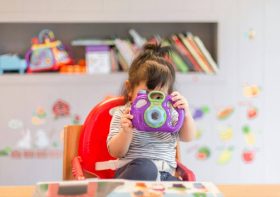Structured school days can keep kids healthy. How can we maintain it over school holidays

Structured school days play a vital role in maintaining the health and well-being of children. From regular physical activity to balanced meals and consistent sleep schedules, the routines established during the school year contribute significantly to children’s overall health. However, school holidays often disrupt these routines, posing challenges to maintaining healthy habits. In this essay, we will explore strategies to uphold structured school-day routines during holidays to promote children’s health and well-being.
Importance of Structured School Days:
Structured school days provide a framework for children to engage in various activities essential for their physical, mental, and emotional development. These routines encompass:
Physical Activity: Regular physical activity, including physical education classes and recess, is crucial for children’s physical health, promoting growth, strength, and cardiovascular fitness.
Nutrition: School meal programs often offer balanced and nutritious meals, ensuring that children receive essential nutrients for growth and development.
Sleep: Consistent sleep schedules established during school days contribute to better sleep quality, cognitive function, and overall well-being.
Social Interaction: School provides opportunities for socialization, fostering friendships and emotional connections vital for children’s mental health.
Challenges During School Holidays:
School holidays disrupt these structured routines, leading to potential health implications for children:
Decreased Physical Activity: Without scheduled physical education classes and recess, children may engage in more sedentary behaviors, such as screen time, leading to reduced physical activity levels.
Unhealthy Eating Habits: Absence of school meal programs may result in irregular eating patterns or increased consumption of unhealthy snacks and fast food.
Disrupted Sleep Patterns: Children may stay up later and wake up at irregular times during school holidays, leading to disrupted sleep patterns and potential sleep deprivation.
Isolation and Reduced Social Interaction: Children may experience feelings of loneliness and isolation during holidays, especially if they lack opportunities for social interaction outside of school.
Strategies to Maintain Structured School-Day Routines During Holidays:
To address these challenges and promote children’s health during school holidays, several strategies can be implemented:
Structured Daily Schedule: Establishing a structured daily schedule during holidays can help maintain consistency and routine. This schedule should include designated times for physical activity, meals, sleep, and recreational activities.
Physical Activity Opportunities: Encourage children to engage in regular physical activity by organizing outdoor games, sports activities, or family walks. Limit screen time and encourage active play to ensure adequate exercise.
Healthy Meal Planning: Plan and prepare balanced meals and snacks at home, emphasizing fruits, vegetables, whole grains, and lean proteins. Involve children in meal preparation to educate them about healthy eating habits.
Consistent Sleep Routine: Maintain consistent bedtime and wake-up times throughout the holiday period to ensure adequate sleep duration and quality. Establish calming bedtime rituals to promote relaxation and prepare for sleep.
Social Interaction and Engagement: Arrange playdates, outings, or activities with friends and family to provide opportunities for social interaction and emotional connection. Engage in group activities or community events to foster a sense of belonging and camaraderie.
Educational Enrichment: Incorporate educational activities and learning opportunities into holiday routines, such as visits to museums, libraries, or cultural attractions. Encourage reading, creative projects, or educational games to stimulate children’s minds and prevent learning loss.
Limiting Screen Time: Set limits on screen time and encourage alternative activities that promote physical, mental, and social engagement. Provide opportunities for creative expression, imaginative play, and outdoor exploration to reduce reliance on electronic devices.
Parental Role Modeling: Serve as positive role models by prioritizing healthy habits and participating in activities with children. Demonstrate the importance of regular exercise, nutritious eating, adequate sleep, and social interaction through your own behaviors and choices.
Conclusion:
Maintaining structured school-day routines during holidays is essential for promoting children’s health and well-being. By implementing strategies such as structured schedules, physical activity opportunities, healthy meal planning, consistent sleep routines, social engagement, educational enrichment, limiting screen time, and parental role modeling, parents and caregivers can support children in maintaining healthy habits during school breaks. By prioritizing health and wellness, we can ensure that children continue to thrive physically, mentally, and emotionally throughout the year, setting a foundation for lifelong well-being.




Leave a Reply